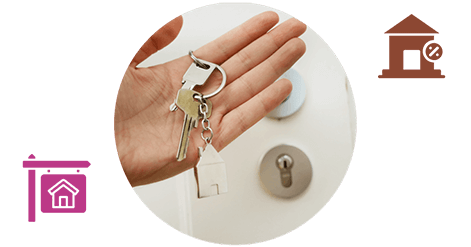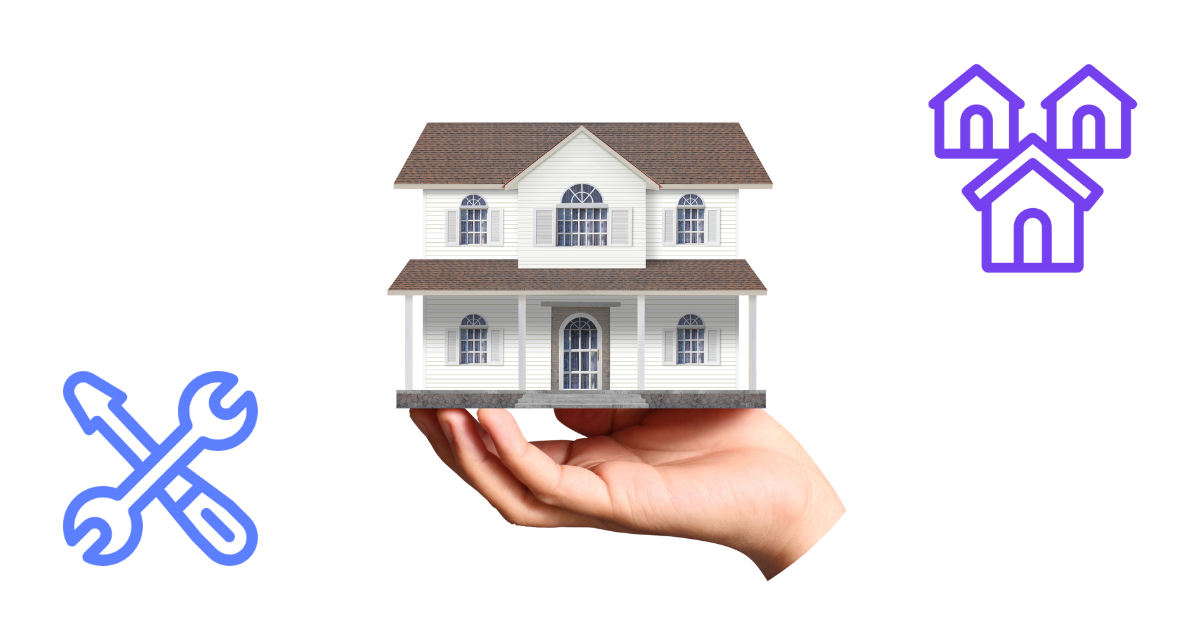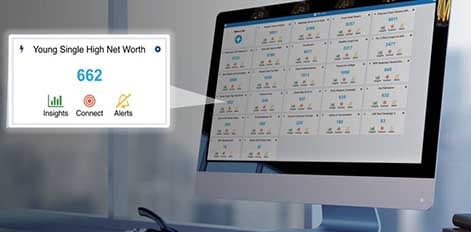5 Tips For Building New Homeowner Lists That Convert

Whether someone is moving for a change of scenery, a new job opportunity, to be closer to family, or just because they're looking to upsize/downsize their home, the fact is that Americans love to move around. People who move around are also likely to spend money on their new homes…
In fact, the 2022 Houzz & Home Survey of 70,000 U.S. respondents found that homeowners plan to spend $15,000 this year to renovate their houses. That’s a four-year high and a 50% jump over the $10,000 Americans spent over the previous three years.
Defined as anyone who has bought a property in the last 6-12 months, New Homeowners are an incredible audience to find opportunities. They’ll likely make new decisions based on their accommodations, such as renovations/improvements, internet/phone/tv services, and landscaping/pool additions.
Here, we'll look at some essential tips for building a new homeowner list that converts.
Tip #1: Target new homeowners who have purchased in the last 6-12 months.
First and foremost, ensure that you're targeting new homeowners who've purchased their homes in the last 6-12 months. Anything longer than a year is not considered a "New Homeowner," and their needs will almost certainly be different than someone who's just purchased a home.
For instance, someone who has just purchased a home may require extra storage, especially if they're downsizing. In addition, they may need landscaping repairs such as adding fencing or clearing out shrubbery. Or, they may need other cosmetic services like painting rooms a different color, updating the fixtures in their kitchen, etc.
In fact, according to a recent Eye On Housing Report, in the first year after a closing, new home buyers spend close to $12,000 on projects, while those who buy existing homes spend less than half that amount. ($5,760). Additionally, non-moving owners will only spend around $3,000 on home projects in a year.
In particular, new construction homes in large-scale developments by trendy home builders are likely to have new homeowners who may be dissatisfied with contractor-grade finishes. The reason is that new construction properties can come with a premium cost based on finishes, and most buyers tend to shy away from these upfront costs. While some may be content with these finishes, others may still be in a “buying mood” and be more motivated to renovate quickly to customize their homes exactly to their liking.
Typically, when someone has lived in a home longer than 12 months, they’re more likely to end up dealing with finishes the way they are. In other cases, different things will simply take priority and home renovations may take a backseat. That's why the most critical step you can take when leveraging a new homeowner database is to ensure you're correctly within that "new homeowner" first-year window.
Tip #2: Match the home criteria to your services.
Now that you've made sure you're targeting a list of homeowners in a specific geographic area who've purchased within the last 6-12 months, you can start layering in additional property criteria to hone in on the exact types of properties that align with your services.
Let's take a look at a couple of examples.
First, let's start with a roofing company.
If you’re in the roofing business, you’ll want to ensure you’re targeting recent homebuyers whose home is in the sweet spot where it’s old enough to need a new roof, but not so old that the prior owner replaced the roof. Think about 12-15 years. Remember, new homeowners are often in that “buying mood,” and the last thing they’ll want is a major liability, like an old or leaky roof, to jeopardize their new home.
The initial move-in window is the perfect time to create a new homeowners mailing list and strike while the iron is hot to win new customers - remember, if you're not working these leads, someone else certainly will.`
Next, let's say you're a landscaping company.
You'll want to ensure that the newly purchased home has a backyard or sizeable lot that will need maintenance. Consider adding additional criteria, like if there is a homeowner's association. They'll almost always require a certain level of landscape upkeep, and new homeowners may want to avoid tackling all the yardwork themselves.
Of course, you may get an ambitious new homeowner, but stay on top of long-term marketing and add them to your new homeowners mailing lists- they'll eventually burn out of having to spend all weekend cleaning up their yard! If you send them direct mail and follow up long enough, you'll build brand recognition for when the time is right.
Tip #3: Match the home value to your services.
Similar to matching property criteria to your services, you'll need to make sure that you consider a home's property value as well.
New homeowners who've recently purchased high-value homes are more likely to look for high-end services to keep up their properties. In this case, it's critical to consider the property's value in correlation with your services. Alignment here is critical for effective marketing and messaging that resonates since new homeowners' spend is often proportional to the value of their new home.
Let’s take a look at a few examples of home criteria based on services:
Solar
List Criteria: High Estimated Value, Large Size (SqFt or Beds), Owner-Occupied (with pool is a bonus)
Contractors (High-End)
List Criteria: Owner Occupied, Year Built, High Estimated Value, Cash Purchase (bonus)
Contractors (Low-End)
List Criteria: Owner Occupied, Year Built, Low Estimated Value
Contractors (For Investors)*
List Criteria: Non-Owner Occupied, Year Built
*The contractor’s goal here is to offer investors renovation services to help them fix up properties to flip or rent out. Some contractors may be able to get a lot of repeat business depending on the investor's portfolio and the type of work needed.
Roofer (High-End)
List Criteria: Owner Occupied, Year Built, High Estimated Value, (Cash purchase is a bonus)
Roofer (Low-End)
List Criteria: Owner Occupied, Year Built, Low Estimated Value.
The main takeaway is that often, homeowners buy services proportional to their home's value, so make sure you're building your marketing lists accordingly.
Tip #4: Factor in demographics into your new homeowners list.
When building a new homeowner mailing list, an often overlooked criterion is demographics. By layering demographic data into your list, you'll be able to target new homeowners in various ways.
Let’s take a look at one in particular…
Oftentimes, a willingness to engage in projects depends on demographics. Younger owners are much more likely to take on more of their own projects, while older homeowners may need assistance for services around the house.
Eventually, younger homeowners may get burnt out from dealing with things like mowing the lawn every weekend or fixing that same leaky spot on their roof.
So, while you may want to target older homeowners to start, keeping younger homeowners in your long-term follow-up plans is a great way to build brand recognition for when the time is right and they look to outsource a majority of house upkeep responsibilities.
Tip #5: Tie in ownership occupancy into your new homeowners list.
There are two different types of owners: primary owners and absentee owners.
When building a new homeowner mailing list, like the home value or financial standing, the owner type will play a large part in the kind of services they're looking for.
Real estate investors make up the majority of absentee owners, and they will not be looking for the highest-end services or products. For example, it's doubtful that an absentee investor owner is going to want to pay for solar on their rental property. However, if marketing to a primary owner home market, they may be more likely to invest in solar panels for the long-term benefits.
On the other hand, if you're a property management company, absentee owners may be an ideal audience for you to market to. For example, new homeowner mailing lists consisting of investors who may live in another county or even a different state would be perfect for marketing property management services.
They're likely not going to want to deal with the burden of out-of-county or out-of-state ownership, so reaching out to them sooner after they've purchased their new home can help put you in a position to win their business.
Build your New Homeowners List With Your Free Trial of PropertyRadar Today!


